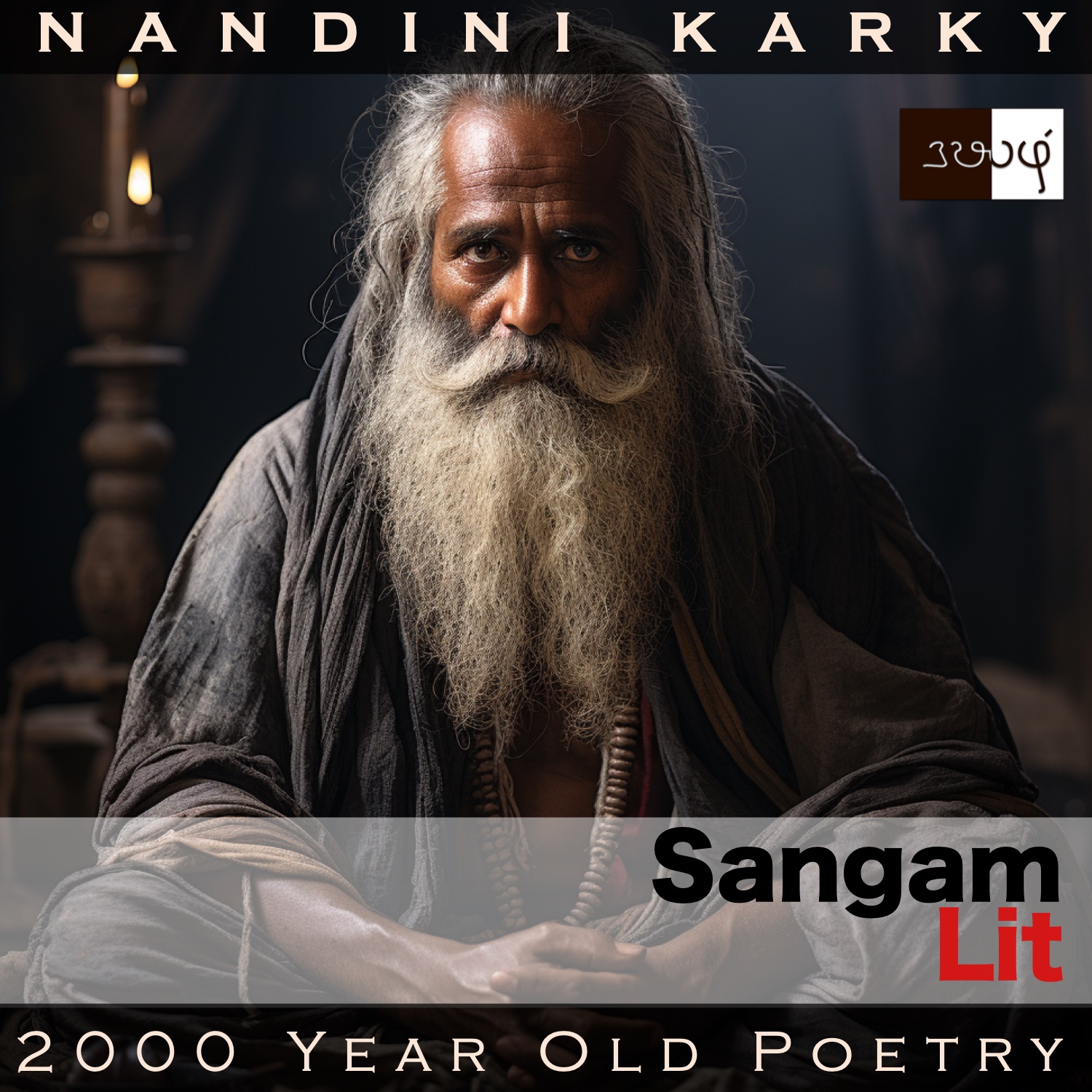Podcast: Play in new window | Download
Subscribe: Apple Podcasts | Spotify | Amazon Music | Android | iHeartRadio | Email | TuneIn | RSS | More
In this episode, we listen to words of advice rendered to the aged, as portrayed in Sangam Literary work, Puranaanooru 195, penned by the poet Nariveruvoo Thalaiyaar. Set in the category of ‘Pothuviyal Thinai’ or ‘Common Themes’, the verse talks about the way to be before life ends.

பல் சான்றீரே! பல் சான்றீரே!
கயல் முள் அன்ன நரை முதிர் திரை கவுள்,
பயன் இல் மூப்பின், பல் சான்றீரே!
கணிச்சிக் கூர்ம் படைக் கடுந் திறல் ஒருவன்
பிணிக்கும் காலை, இரங்குவிர் மாதோ;
நல்லது செய்தல் ஆற்றீர் ஆயினும்,
அல்லது செய்தல் ஓம்புமின்; அதுதான்
எல்லாரும் உவப்பது; அன்றியும்,
நல் ஆற்றுப் படூஉம் நெறியும்மார் அதுவே.
A curious song considering the group of people it addresses and the message to them. The poet’s words can be translated as follows:
“O learned men! O learned men, having greying hair akin to a fish bone on your lined cheeks, attaining old age in a pointless manner! When he who has a sharp axe and immense strength afflicts you, you will be filled with regrets many; Even if you cannot do good, remain without doing evil; That’s the thing that brings happiness to everyone. Besides, that’s the only way for you to reach the righteous path!”
Let’s take a closer look at this verse. The poet makes it clear that he’s talking to a knowledgeable group of people. We know that they are of mature years because of a striking visual simile – the description of those men having grey beards with strands of white hair shaped like a fishbone. In addition, he calls their old age as being pointless. Why such harsh words? Let’s listen to the rest of what he says before we make sense of this seeming disrespect to elders.
Conjuring an image of a formidable figure wielding an axe, the poet says the day this person seizes those elders, that’s when they would feel a lot of regret. From that, we understand the poet is talking about the God of Death. And so, to avoid the regret then, if they cannot do good things, at least they must refrain from doing bad, the poet says. He concludes by saying that’s what would render joy to others and put those people on the right path. These words make me think that those elders must have engaged in activities, which seemed to have been wrong in the eyes of this poet. When he calls their old age pointless, he means that they have not attained the wisdom associated with that age. And so, he says those words of common sense -‘If you can’t do good, don’t do bad at least’. That’s easier of the two. In the final words, the poet points out to how this course of action would not only be joyous to others, but is the very thing that would put these people on the right course before they met their end.
The highlight of these words is that the advanced age of others seems not to have stopped this poet from offering advice to them on the way to live – a contrast considering how elders in many societies, eastern especially, are automatically deferred to and thought to know best. A verse from the ancient past that contradicts this thought and says it’s not your age but your actions that will truly command the respect of the world!




Share your thoughts...